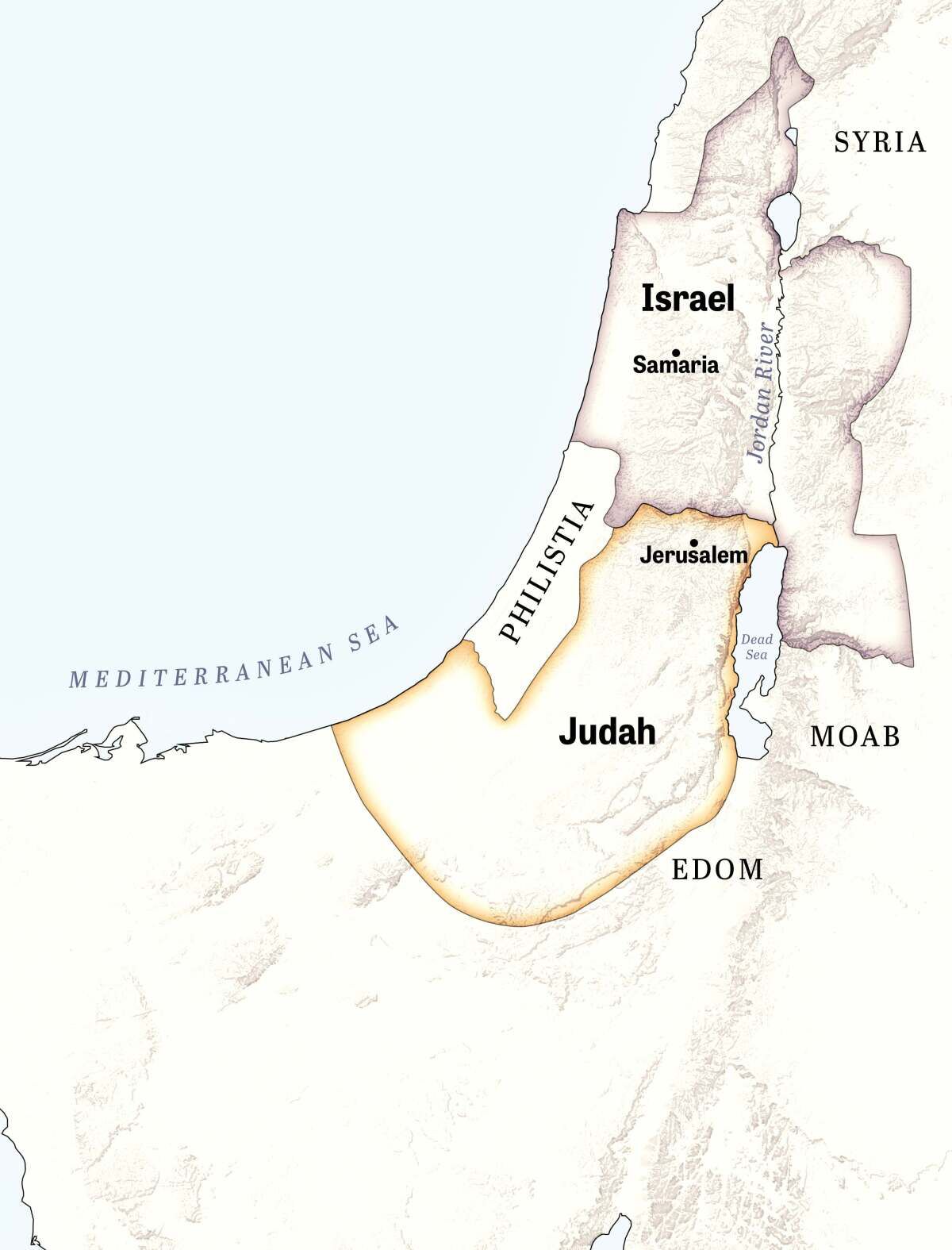The Archaeology of Israel’s Disastrous Split
The biblical text says that before King Solomon died, a prophet told him the powerful kingdom he had built would be rent in two: “And the Lord was angry with Solomon, because his heart was turned away from the Lord, the God of Israel …. Wherefore the Lord said unto Solomon: ‘Forasmuch as this hath been in thy mind, and thou hast not kept my covenant and my statutes, which I have commanded thee, I will surely rend the kingdom from thee, and will give it to thy servant” (1 Kings 11:9-11).
This is exactly what happened at the beginning of his son Rehoboam’s reign. The people requested that Rehoboam lower the burdensome taxes. Yet Rehoboam not only refused, he imposed harsher taxes, causing most of the people to revolt. When he sent Adoram, his chief tax collector, to deal with the problem, they stoned him to death. Rehoboam fled.
1 Kings 12:16 and 19 record:
And when all Israel saw that the king [Rehoboam] hearkened not unto them, the people answered the king, saying, ‘What portion have we in David? neither have we inheritance in the son of Jesse; to your tents, O Israel; now see to thine own house, David.’ So Israel departed unto their tents. … So Israel rebelled against the house of David, unto this day.
Israel had a bad attitude about the house of David. The people were not just rebelling against Rehoboam, or against Judah or Jerusalem. The great sin of the northern kingdom of Israel was their rebellion against the house of David!
Ten of the 12 tribes of Israel then looked to Jeroboam as their king. God had handpicked Jeroboam. He had told him that if he would follow after God’s way and rule according to His laws, then He would establish him as “a sure house, as I built for David” (1 Kings 11:38). Jeroboam had every opportunity to succeed. He could have directed the people back to King David and his legacy. But he didn’t.
Once the northern 10 tribes rebelled, Jeroboam wanted to make sure they never returned to the house of David. He hated David’s legacy and was concerned that if the people continued to travel to Jerusalem to make sacrifices in the temple, they would return to Rehoboam (1 Kings 12:26-27).
Here is what Jeroboam did: “Whereupon the king took counsel, and made two calves of gold; and he said unto them: ‘Ye have gone up long enough to Jerusalem; behold thy gods, O Israel, which brought thee up out of the land of Egypt’” (verse 28). This was the biggest lie he could have possibly told: that these golden calves were the gods that delivered Israel from Egypt! He was flagrantly rebelling against the omnipotent, all-powerful God! King Jeroboam even moved the keeping of God’s feast days to one month later (verse 32).

Where did this rebellion lead Israel? The nation never recovered. In the centuries that followed, the northern kingdom didn’t have even one righteous king. Eventually it was brutally conquered and lost its identity.
A lot of archaeological evidence attests to Israel under David and Solomon, what we call the united kingdom. We have written several articles on this topic, which have been published in this magazine and on our website.
But did you know there is also clear, compelling archaeological evidence of the religious revolution that occurred under King Jeroboam, as well as the disastrous split in the kingdom?
In “The Man ‘Who Made Israel to Sin’”, Nicholas Irwin summarizes the archaeological evidence confirming the biblical record of Jeroboam.
The chronicle of those northern 10 tribes that departed from David’s throne is absolutely terrible. It is filled with tragedy of every stripe, brutal politics, usurping and murder. It vividly shows the consequences of disloyalty to God’s throne! Rehoboam, for his part, also made terrible mistakes in his reign over the southern kingdom. He was not a good king (1 Kings 14:23-24).
As a result, in the fifth year of Rehoboam’s reign, Pharaoh Shishak invaded the southern kingdom of Judah. There is significant archaeological evidence of this invasion, as explained in our cover story “The Egyptian Empire Strikes Back: Evidence of Shishak’s Invasion of Judah,” by Christopher Eames.
Unlike the northern kingdom, the southern kingdom did have some righteous kings. Those who followed in the footsteps of King David and looked to God were the most successful.
The late 10th century b.c.e. was a critical period in Israel’s history. The nation was going through its biggest change: transitioning from a united, powerful kingdom into a divided, turbulent rebel nation and a weakened rump state. Some of the articles in this issue explore this period in Israel’s history and provide the archaeological context. I hope you find it an interesting and exciting study.